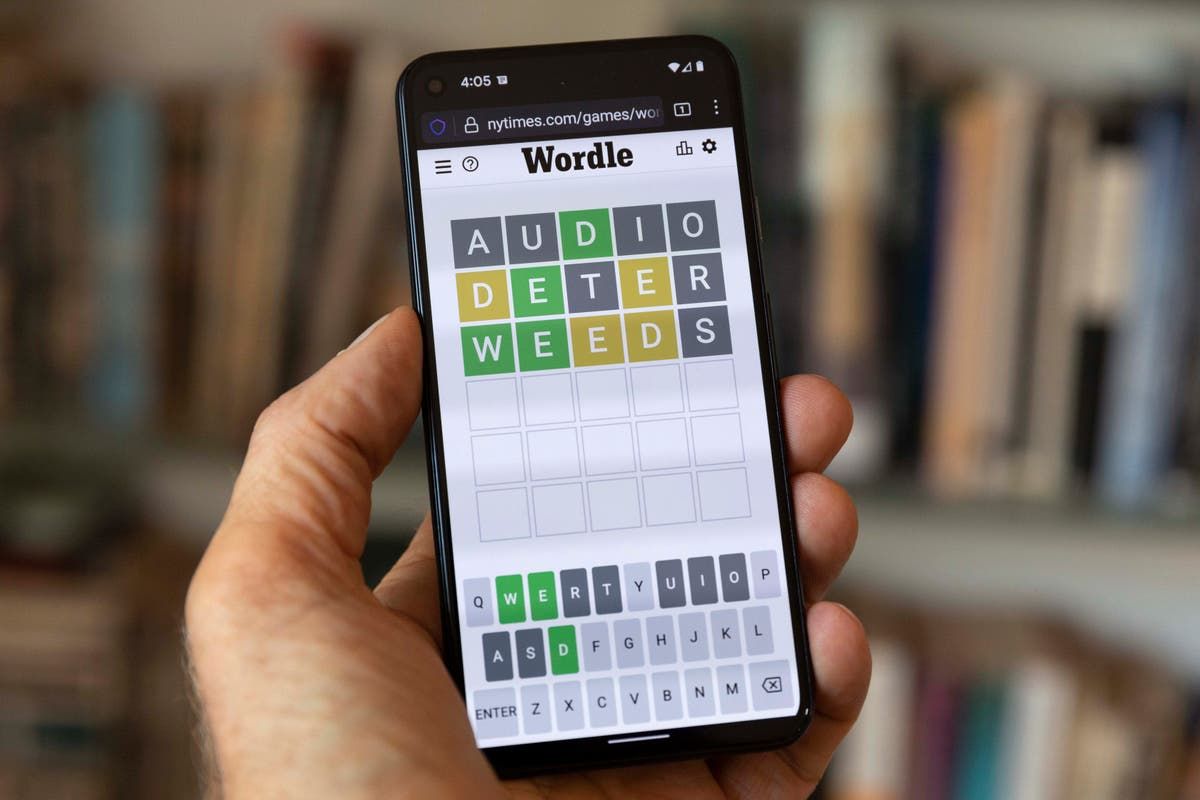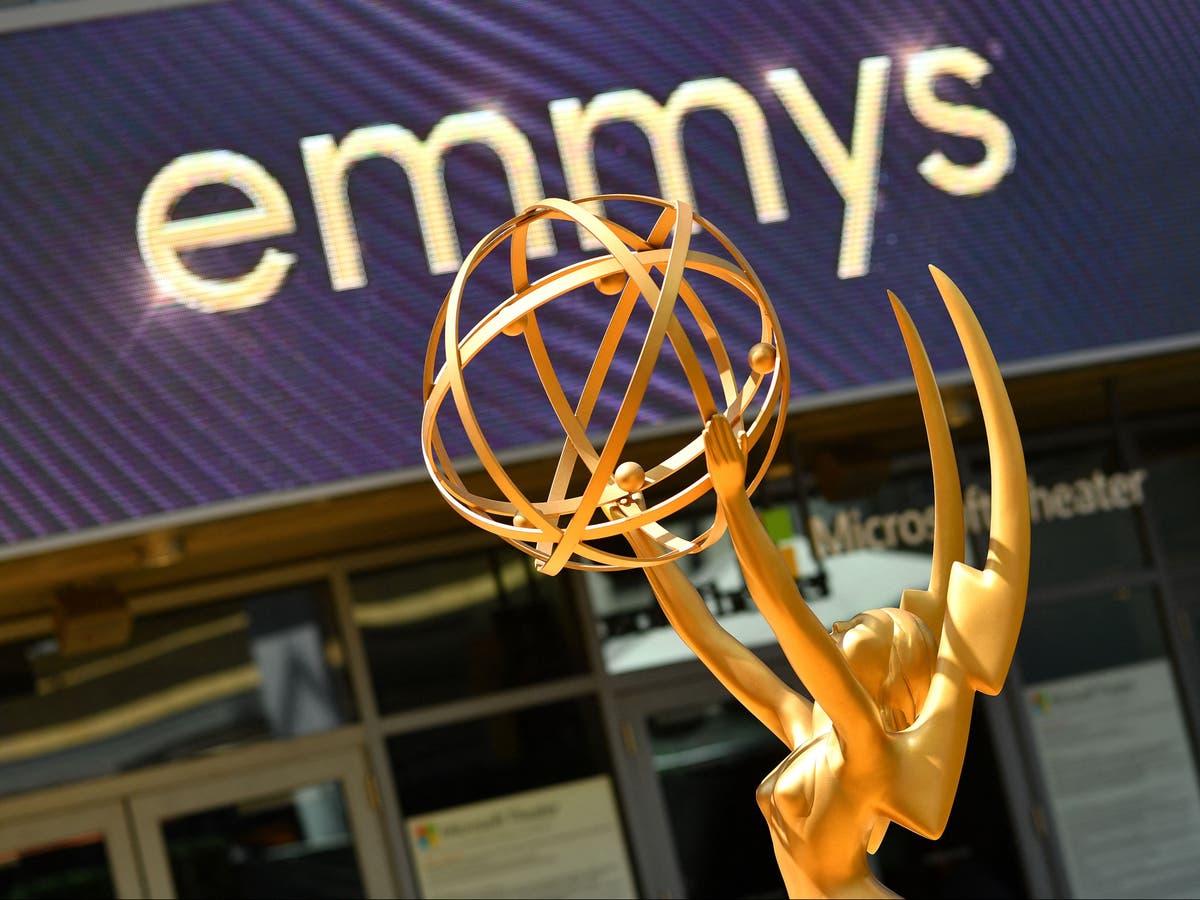Yesix tries to guess five letters that make up a word. The simple premise that became a global sensation first emerged as a way to distract ourselves from any stress happening around us while we were confined to our homes during the pandemic. But while Wordle and many other telephone and Internet games offered respite for some, not everyone found the games as comforting or as simple as they seemed.
Since then, games have become part of the daily routine for many, whether it's trying to solve the puzzle first thing in the morning or completing it during a free moment while getting ready for bed.
Perhaps the most popular of the games is Wordle, which the public began playing in October 2021, but which creator Josh Wardle sold to The New York Times in January 2022. The game requires players to guess a five-letter word in six tries and receive feedback after each attempt to guess the word correctly. Green tiles reveal whether the letter is in the correct place, yellow tiles indicate that the letter is in the word but not in the correct place, and a gray tile means that the letter is not in the word at all.
However, a recent report in the daily beast suggested the New York Times Games, including Connections and Mini Crossword, may be hurting our mental health more than helping it. The outlet spoke with mental health professionals who explained the downsides of gaming and how the need to complete or win each daily iteration may be interfering with our lives.
Dr. Clifford Sussman, a Washington psychiatrist who specializes in Internet and gaming addiction, told the outlet in the report that “our brains have not evolved to keep up with technology.”
“Today, technology is essentially a shortcut to everything and our brains can't resist that. And the shortcut to a sense of accomplishment by playing one of these online games releases dopamine in the brain. Seeking dopamine release could lead to compulsive and sometimes problematic behaviors,” she said.
Meanwhile, New York psychologist Jennifer Gittleman told the outlet that she has encountered patients in her practice who mention that they cannot complete their daily tasks because of the amount of time they spend playing.
Many users have even taken to X, formerly known as Twitter, to discuss the impact Wordle has on their own mental health. Although many have joked about the impact losing can have on their day, for others, the result is truly difficult to deal with.
“I just lost Wordle today. [Be right back] I need to call for a mental health day,” said one cheep read.
another individual wrote: “Taking a break from Wordle to focus on my mental health.”
Some people have even taken to the platform to admit that gaming turns into an argument during scheduled sessions with therapists.
“Therapist: Teagsy, how is your mental health? Me: Well, yesterday I got the Wordle in three tries”, one instance in X broadcast.
According to Thriveworks licensed therapist Hallie Kritsas, who is also an avid Wordle player, she has encountered clients who need to talk about the game during their sessions.
Kritsas said The independent Which is usually their younger clients, who often struggle with anxiety or perfectionism, for whom Wordle is a problem.
“They like to have structure and they like to have a routine because they have it in place, and a part of the routine when they can't successfully complete the Wordle or make the Connections or solve the Mini Crossword in whatever is considered a timely , it just puts them on the wrong path of their day,” he said.
In some cases, linking Wordle to your mental health goes beyond simply making sure you take time out of your day to complete the game, and more emphasis is placed on making sure it's correct, even if a user has to cheat in order to work it out. he.
“For some people who have a little bit higher levels of anxiety, not being able to complete it obviously gives them a kind of sense of disappointment that they can't complete the puzzle,” Kritsas added. “And then, if you think that, [it becomes]: 'Okay, I couldn't decipher Wordle, what's wrong with me?'”
Wordle is not the only game that can affect mental health, as Connections, in which users make four-word connections to form groups, can also have a detrimental effect, according to Kritsas. He used the example of when the game deliberately tries to trick players with words that seem to go together, which can make players angry at themselves for falling for the trick. Then, having people post answers in group chats or on social media can easily lead to self-comparisons based on how quickly you completed the game or how many attempts you made compared to someone else.
For those who feel that the potential negative mental health effects may be outweighing the positive aspects of gaming, Kritsas offered some suggestions.
Users can set a time limit on how much time they really want to spend trying to play each game each day. “Set a time limit that says, 'I'm only going to give myself five minutes or 10 minutes to do it, and if I can't double it in that time, or I haven't finished it, I'm done.' the day,'” she suggested.
This concept can be extended to another popular way people spend their time on the Internet and social media. According to California State University, an estimated 10 percent or 33.19 million Americans are addicted to social media compared to the average person.
For some people, specifically between the ages of 13 and 17, this addiction can have overall negative effects on their mental health, as Statista data shows that of the 1,141 respondents, 43 percent have deleted social media posts. because he received very few. Likes, 43 percent felt bad about themselves if no one liked or commented on their posts, and 35 percent reported experiencing cyberbullying.
Kritsas also recommends talking to a therapist or loved one if gaming is affecting your mental health. By opening up the discussion, players can begin to think about alternative, healthier habits that they can replace Wordle or other telephone games with.
“I think it's great to use it at any time of the day, especially in the morning, to get our brain working, but if it's going to be harmful, we probably shouldn't play it,” Kritsas explained.
And when in doubt, it's helpful to go into the game with the mindset that it's just a game.
“We should just recognize that it's a game and something that should be fun, and no one will know if we solved Wordle or Connections,” he said.
Although it may seem that people most often experience negative thoughts when playing Wordle, Kritsas also noted that even though some of his clients tell him about the game, it is quite rare for someone to be negatively affected by the hobby.
“I have one or two clients who have talked about it and it's frustrating, we'll come to a session and say something about a connection we found or something, but it's not for everyone,” she said. .
And he continued: “I don't have the overwhelming perception that this is something huge, huge. Believe [the games are] tremendously popular. I think most of us do it when we're at work and in front of the computer and we have a break or we have the New York Times app, and simply have it in our hands. But for the majority, I don't think it's as distressing as maybe some of the articles make it out to be.”












